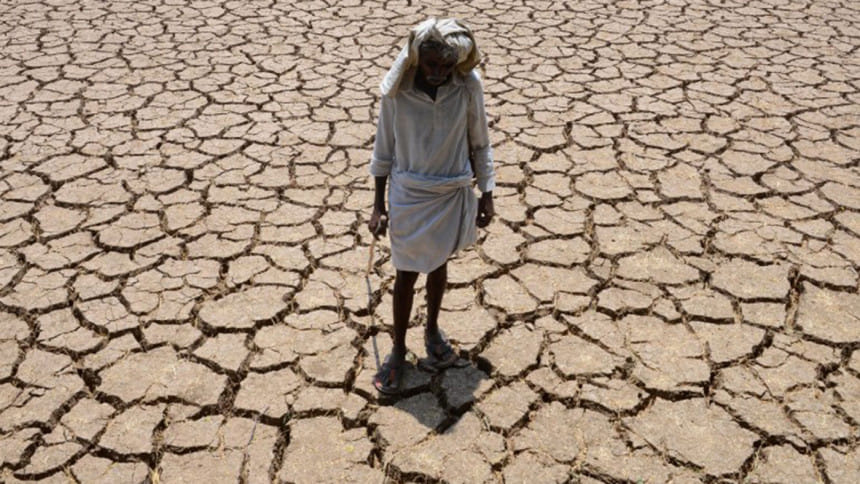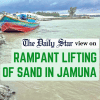India to 'divert rivers' to tackle drought

India is set to divert water from its rivers to deal with a severe drought, a senior minister has told the BBC.
Water Resources Minister Uma Bharati said transferring water, including from major rivers like the Brahmaputra and the Ganges, to drought-prone areas is now her government's top priority.
At least 330 million people are affected by drought in India.
The drought is taking place as a heat wave extends across much of India, with temperatures in excess of 40C.
The Inter Linking of Rivers (ILR) has 30 links planned for water-transfer, 14 of them fed by Himalayan glaciers in the north of the country and 16 in peninsular India.
Environmentalists have opposed the project, arguing it will invite ecological disaster but the Supreme Court has ordered its implementation.
'First in India's history'
"Interlinking of rivers is our prime agenda and we have got the people's support and I am determined to do it on the fast track," Bharati said.
"We are going ahead with five links [of the rivers] now and the first one, the Ken-Betwa link [in Uttar Pradesh and Madhya Pradesh] is going to start any time now.
India's poisoned river
"And then we will have the Damnaganga-Pinjal interlink which will sort out the Mumbai drinking water facility."
Bharati said the river-linking project would be the first in Indian history since independence in 1947.
There were also other projects aimed at supplying water for irrigation and drinking in the next few years and the ILR was a long-term scheme, she added.
Following two consecutive bad monsoons, India is facing one of its worst droughts.
Of its 29 states, nearly half were reported to have suffered from severe water crisis this dry season. The worst hit has been Maharashtra, Uttar Pradesh and Madhya Pradesh, among others.
The federal government in Delhi has had to send trains carrying water to the worst affected places.
India has faced a water crisis for years. Its ground waters have depleted to alarming levels, mainly because of unsustainable extraction for agriculture and industries.
"The water crisis will be there [in the future] because of climate change but through this [inter linking of rivers] we will be able to help the people," Bharati said.
"The public has welcomed it and they are happily ready to be displaced."
'No scientific study'
Critics say the project is not viable financially, environmentally or socially. The government has also been accused of granting environmental clearances without proper assessments.
"It is even more impossible in the context of climate change as you don't know what will happen to the rivers' flows," says Himanshu Thakkar of the South Asia Network for Dams, Rivers and People.
"The project is based on the idea of diverting water from where it is surplus to dry areas but there has been no scientific study yet on which places have more water and which ones less."
The government says the scheme will irrigate 35,000 hectares of land and generate 34,000 megawatts of electricity.
Bharati's Bharatiya Janata Party (BJP) campaigned for the project when it was in power in the 1990s.
But it lost elections to the Congress party which did not seem keen on the scheme.
In 2012, however, when the Congress-led coalition was still in power, the Supreme Court ordered the government to implement the project in a "time-bound manner".

 For all latest news, follow The Daily Star's Google News channel.
For all latest news, follow The Daily Star's Google News channel. 







Comments